If you are like most people, you probably don’t think about your garbage disposal all that often. But when something goes wrong with it, you definitely notice! Garbage disposals can be a real pain to deal with when they stop working properly. In this article, we will discuss everything you need to know about garbage disposals. We will cover topics such as how they work, common problems, and how to fix them. We hope this information will help you troubleshoot any issues you may be having with your disposal!
How a Garbage Disposal Works
At their most basic level, garbage disposals are relatively simple machines. When activated, an electric motor turns a flywheel that is connected to blades. The flywheel spins the blades at high speeds, which pulverizes food scraps and flushes them through the disposal’s drain pipe. Depending on the model of your disposal, you may have additional features such as air-vented ports for extra grinding power or removable baffles for easy cleaning. [1]
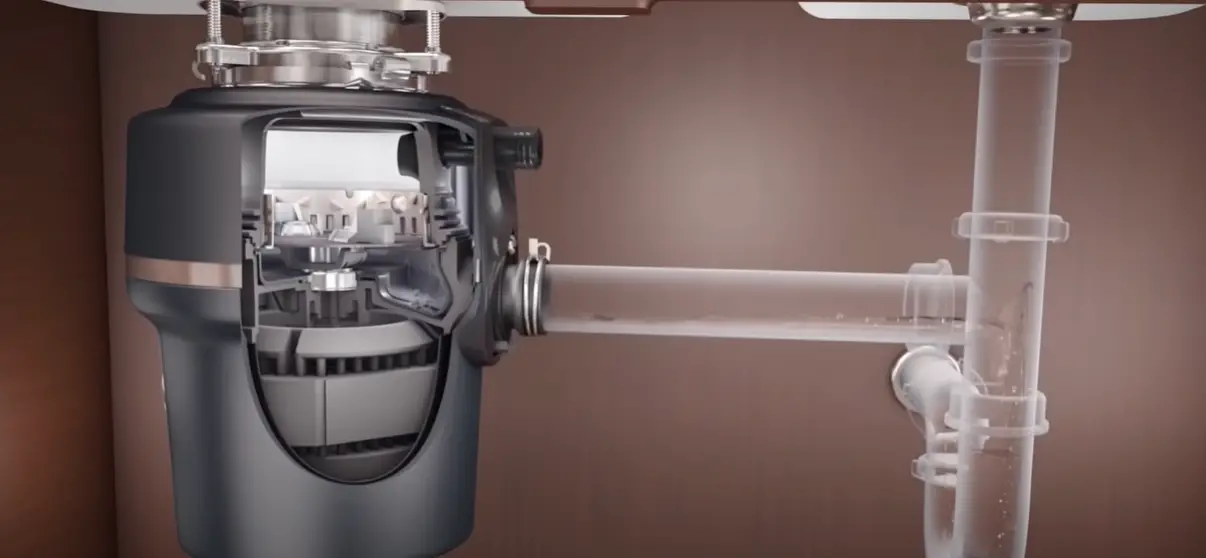
Things You Should Never Put in a Garbage Disposal
Although garbage disposals are great for getting rid of food scraps, there are some items you should never put in them. These include:
- Bones
- Grease and oil
- Stringy vegetables such as celery or asparagus
- Tough fruits like banana peels or apple cores
- Coffee grounds
- Eggshells
- Potato skins
These items can damage the blades, clog your pipes, or cause other issues with your disposal. It is best to avoid putting any of these things in the disposal. [2]
Repair a Clogged Garbage Disposal
If your garbage disposal seems to be clogged and isn’t working properly, there are a few steps you can take to try and fix the problem. First, check for any visible blockages in the sink or drain pipe. If you see any items that could be causing an obstruction, carefully remove them with a pair of pliers. If the clog persists, you may need to run a cable auger through the pipes to try and dislodge it. Once the clog is cleared, make sure to give your disposal a good rinse with hot water before attempting to activate it again.
Selecting a Garbage Disposal
If you’re in the market for a new garbage disposal, consider the size and type of your sink before making a purchase. Make sure to measure the space beneath the sink so that you can determine how much room you have for garbage disposal.
Additionally, think about how often you will be using it and what types of food scraps you plan on disposing of regularly. Selecting one with additional features such as air-vented ports or removable baffles may be worth investing in if you plan on running larger amounts of food waste through it often.
Garbage Disposal Installation
When it comes time to install your garbage disposal, be sure to read the instructions carefully and take all necessary safety precautions. If you are uncertain about any of the steps involved in the installation, call a professional for assistance. Additionally, make sure that you have all the tools and supplies needed before beginning. This includes items such as screws, mounting hardware, plumber’s putty, and an adjustable wrench. [3]
Garbage Disposal Removal
If you’re removing an old garbage disposal, begin by disconnecting the power supply and water lines. Unscrew and remove the mounting bolts that hold it to the sink before carefully lifting it out of the cabinet (most disposals will require two people for this step). Once it is removed, be sure to properly dispose of the unit safely and responsibly.
Common Problems With Garbage Disposals
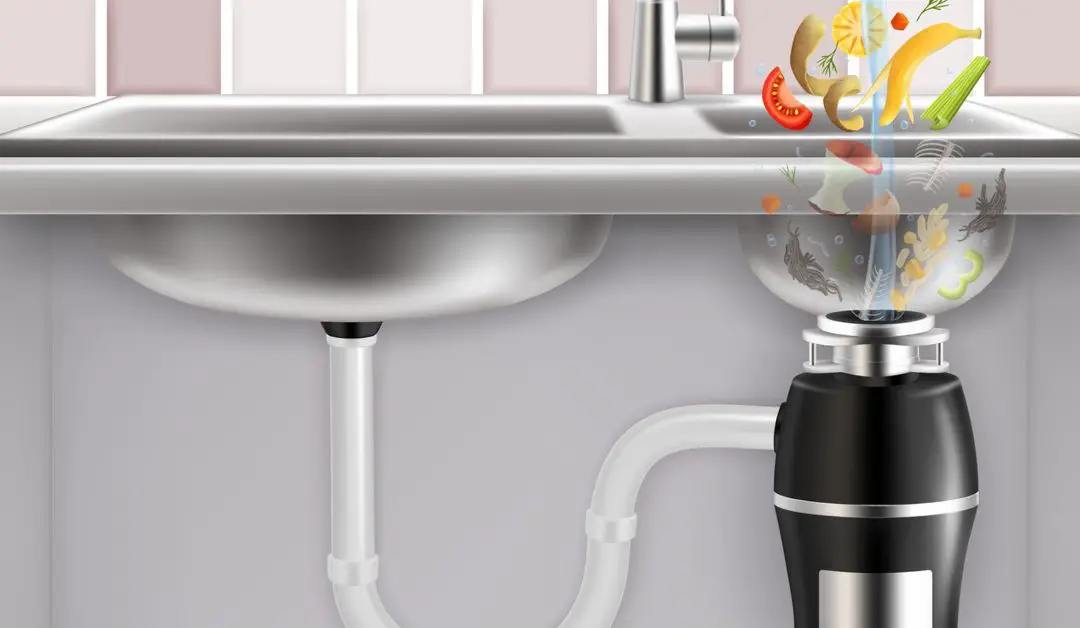
Several common problems can occur with garbage disposals. These include clogs, jammed blades, and leaky pipes. If your disposal is making a strange noise or not working properly, it’s best to first inspect the unit for any visible issues before attempting to fix it yourself. If you do attempt to repair it yourself, be sure to turn off the power supply and water lines before attempting any repairs. Additionally, if you’re ever in doubt about how to proceed with a repair, call a professional for assistance. [4]
Clogs and Jamming
If your garbage disposal is clogged or the blades are jammed, you will need to take steps to clear the obstruction. Start by unplugging the power supply and turning off the water lines before attempting any repairs. Use a flashlight to inspect the unit for visible blockages and carefully remove them with pliers if necessary. If there are no visible blockages, try running a cable auger through the pipes to see if it can dislodge anything.
Leaks
Another common issue with garbage disposals is a leaky pipe. If you notice any water dripping from the unit, start by checking for any loose parts or cracks in the pipes. Make sure to tighten any loose screws and replace any cracked or broken pipes before using your disposal again. Additionally, check the gaskets and seals around the drain to make sure they are properly sealed.
Noise
Finally, if your garbage disposal is making loud or strange noises, it could be an indication of a larger problem. Check for any debris caught in the blades and make sure all the screws are tightened properly. Additionally, inspect the unit for any signs of corrosion or rust that may need to be addressed. If you’re ever uncertain about how to proceed with a repair, call a professional for assistance.
Benefits of Installing a Garbage Disposal
Installing a garbage disposal can be a great way to reduce your household waste. By disposing of food scraps in the unit instead of throwing them away, you can help decrease the amount of landfill waste and lessen your environmental impact. Additionally, modern garbage disposals are designed to be more efficient than their predecessors and require less energy to operate. This means that by investing in one now, you could potentially save money on your utility bills over time.
Garbage Disposals: A Comprehensive Guide
Garbage disposals are convenient kitchen appliances that help manage food waste efficiently. Below, we provide an in-depth guide to everything you should know about garbage disposals, including their benefits, operation, maintenance, and more.
| Aspect | Information |
|---|---|
| Function | Garbage disposals shred food waste into tiny particles, allowing it to flow through plumbing and be treated at wastewater facilities. |
| Benefits | Reduces food waste in landfills, minimizes odors, and prevents clogs in kitchen pipes. |
| Operation | Turn on the disposal, feed small bits of food waste, and run water while operating to help flush particles down the drain. |
| Accepted Waste | Most organic food waste, including fruit peels, vegetable scraps, and small bones, can be processed by a garbage disposal. |
| Avoided Waste | Fibrous, hard, or non-food items like potato peels, corn husks, eggshells, and grease should be avoided. |
| Maintenance | Clean the disposal regularly, avoid overloading it, and periodically use ice cubes or citrus peels to prevent odors. |
| Installation | Can be installed in most kitchen sinks with the proper plumbing setup. Professional installation is recommended. |
| Environmental Impact | While they reduce landfill waste, disposals can strain wastewater treatment systems and may have energy and water consumption implications. |
| Safety | Follow safety guidelines, such as running water while operating the disposal and avoiding hands inside when it’s running. |
| Legal Restrictions | Some regions have restrictions on garbage disposals due to wastewater system limitations. |
Explanation of the Table:
- Function: Describes the primary purpose of garbage disposals in managing food waste.
- Benefits: Highlights the advantages of using a garbage disposal.
- Operation: Provides a basic overview of how to use a garbage disposal.
- Accepted Waste: Lists examples of food waste suitable for disposal.
- Avoided Waste: Mentions items that should not be put in the disposal.
- Maintenance: Offers tips on keeping the disposal clean and well-functioning.
- Installation: Discusses the installation process and recommendations.
- Environmental Impact: Covers potential environmental considerations related to disposals.
- Safety: Provides safety measures for using a garbage disposal.
- Legal Restrictions: Mentions potential limitations imposed by local regulations.
By understanding these aspects, you can make informed decisions about using, maintaining, and caring for a garbage disposal in your kitchen.
FAQ
What do I need to know before installing a garbage disposal?
Before installing a garbage disposal, you should familiarize yourself with the model’s features and specifications. Additionally, be sure to check any local building codes that may apply to your area as well as the manufacturer’s installation instructions before beginning your project.
What is the best type of garbage disposal to buy?
The best type of garbage disposal to buy depends on your individual needs. Consider the size and power of the unit, its features, and whether it is designed for continuous or batch operation before making a purchase. Additionally, check any local building codes that may apply to your area before installation.
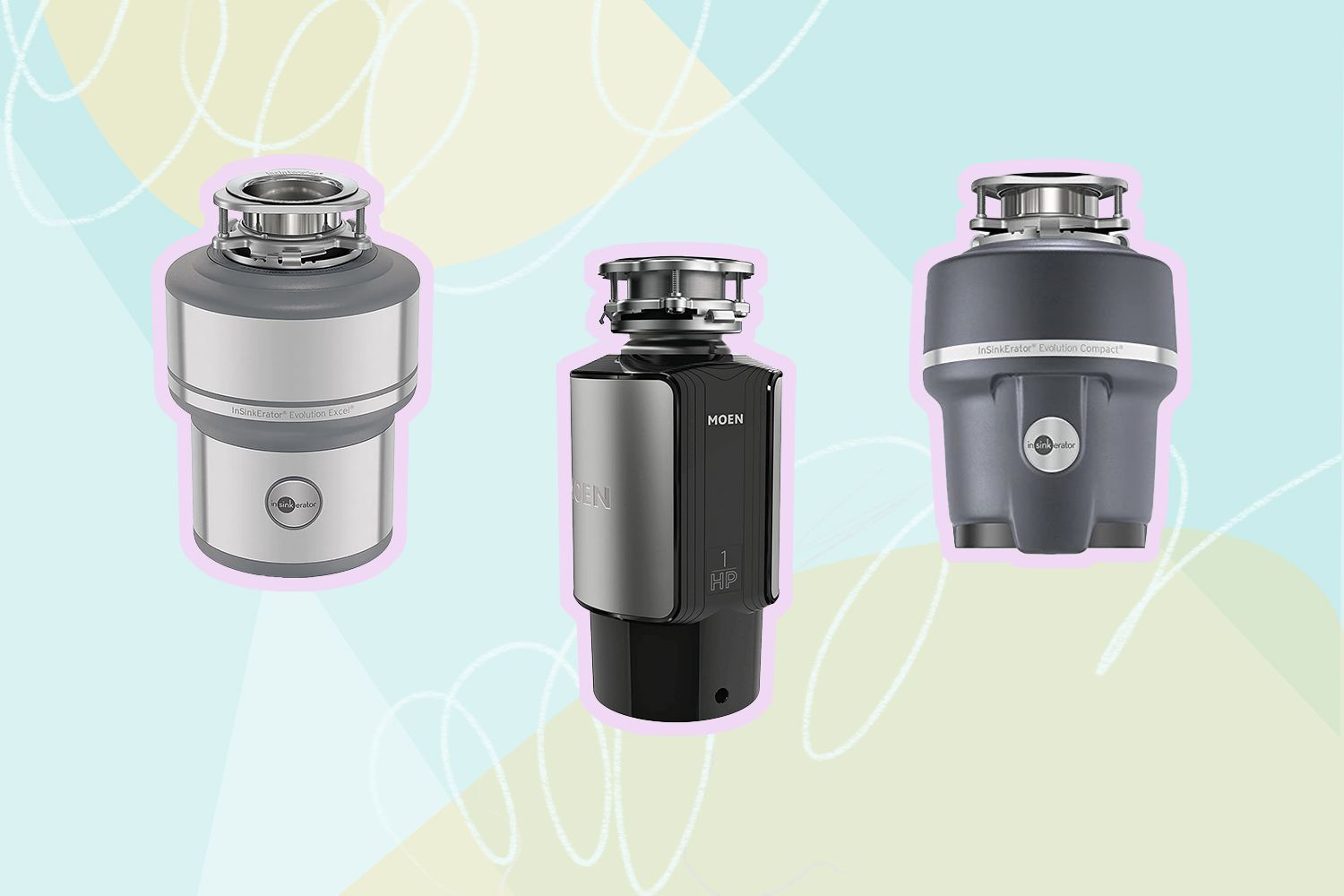
How long do garbage disposals last?
The lifespan of a garbage disposal can vary depending on the model and how it is used. Generally, most garbage disposals will last anywhere from 5-15 years if properly maintained. If you notice any issues with your unit, be sure to call a professional for assistance before attempting to fix it yourself.
Do all garbage disposals fit all sinks?
No, not all garbage disposals will fit all sinks. Be sure to measure the sink opening before purchasing a unit and check the manufacturer’s specifications for compatibility. Additionally, some models are designed for specific types of sinks so be sure to read any instructions carefully before attempting to install it.
What do plumbers think of garbage disposals?
Most plumbers are generally in favor of having a garbage disposal installed in the home. Not only can they help reduce your household waste, but they can also save you money on your utility bills over time. Additionally, modern models are designed to be more efficient than their predecessors and require less energy to operate. If you ever have any doubts about how to proceed with a repair, call a professional for assistance.
How does a garbage disposal work?
A garbage disposal is installed beneath your kitchen sink and is designed to shred food waste into small particles using sharp blades. The particles are then flushed down the drain with water, reducing the likelihood of clogs in your plumbing system.
Can all types of food waste be disposed of in a garbage disposal?
Most food waste can be disposed of in a garbage disposal, including soft scraps like fruit peels and vegetable remnants. However, fibrous or hard materials like bones, corn husks, and coffee grounds should be avoided as they can damage the disposal’s blades or clog the plumbing.
Are there any maintenance tasks required for garbage disposals?
Regular maintenance can prolong the life of your garbage disposal. Running cold water while using the disposal helps solidify grease and oils, preventing clogs. You can also grind ice cubes or citrus peels to help clean the disposal and reduce odors.
What should I do if my garbage disposal gets clogged?
If your garbage disposal becomes clogged, turn it off immediately to avoid damaging the motor. Use a special disposal wrench or a wooden spoon to manually turn the disposal blades and dislodge the clog. Avoid using chemical drain cleaners as they can be harmful to the disposal.
Can I use my garbage disposal with a septic system?
Yes, some garbage disposals are designed specifically for use with septic systems. These models often have features to break down waste more effectively and reduce strain on the septic system. Look for disposals labeled as “septic-safe” or consult with a professional.
What noises are normal for a garbage disposal?
A certain level of noise is typical when operating a garbage disposal due to the grinding of food waste. However, loud, unusual noises like grinding metal or rattling could indicate a problem with the disposal’s components and might require maintenance or repair.
Can I install a garbage disposal on my own?
Installing a garbage disposal can be a DIY project for those with basic plumbing skills. However, if you’re not comfortable working with plumbing, it’s advisable to hire a professional plumber to ensure proper installation and avoid any potential issues.
Are there any safety precautions I should follow when using a garbage disposal?
Always run cold water while using the garbage disposal to help prevent overheating. Avoid putting hands or utensils into the disposal while it’s running. Never dispose of non-food items or materials that can damage the blades.
Can a garbage disposal eliminate odors?
Yes, garbage disposals can develop unpleasant odors over time. To eliminate odors, you can grind citrus peels or use a mixture of baking soda and vinegar. Regular cleaning and maintenance can also help prevent odors from forming.
Are there any alternatives to using a garbage disposal?
If you’re looking for an alternative to a traditional garbage disposal, you can consider composting food waste. Composting is an eco-friendly option that turns food scraps into nutrient-rich soil for gardening.
Useful Video: Best InSinkErator GARBAGE DISPOSAL! Can they handle our test?? – Twin Plumbing
Conclusion
If your garbage disposal is on the fritz or you’re considering investing in one, we hope this article was helpful. From understanding how they work to tips for cleaning and maintaining them, now you should be an expert on all things garbage disposals. Be sure to follow the manufacturer’s recommendations as well as our tips to keep your unit running smoothly. As always, feel free to reach out to us if you have any questions – we’re happy to help.
References
- https://www.thespruce.com/everything-about-garbage-disposals-4150510
- https://www.allrecipes.com/article/what-not-to-put-in-garbage-disposal/
- https://www.homedepot.com/c/ah/how-to-install-a-garbage-disposal/9ba683603be9fa5395fab902ddad881
- https://www.goldmedalservice.com/about-us/blog/garbage-disposal-problems-solutions-garburator-repair-signs/





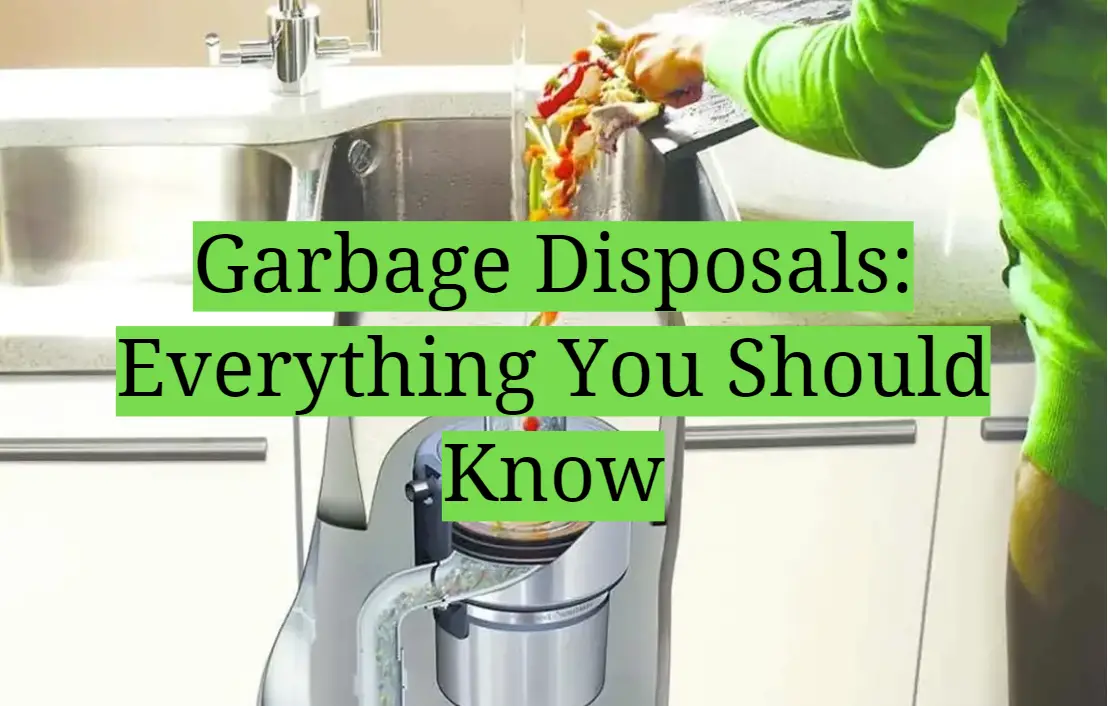




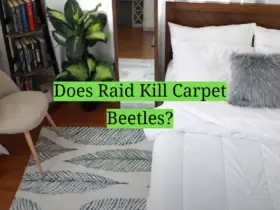



Leave a Reply